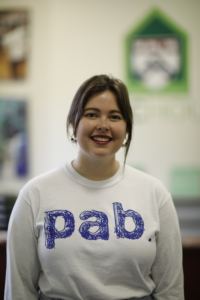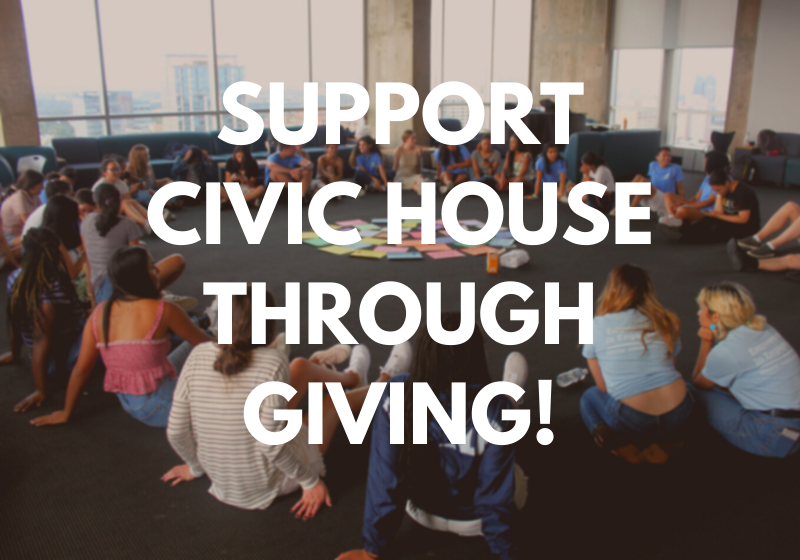In spring 2019, Aileen returned to West Virginia as a site leader. This year, Aileen serves on the PAB Board as Education Coordinator.
Aileen was initially nervous to go on a week-long trip with people she didn’t know, but decided to participate during her sophomore year. During this trip, Aileen worked with with ASP, an organization based in Appalachia County that focuses on home repair for low-income families.
Before working with ASP, Aileen had never done home repair or construction work. “I was surprised with how willing I was to do things,” Aileen said. “All the projects that you get, you’re capable of doing no matter the level of experience.”
Described as “one of the best experiences Penn has given [her],” Aileen found that being able to bond with other Penn students “outside of a Penn environment” was what kept her coming back to PAB.
“That space of growth, trust, and being able to open up to people that I didn’t know before was something that I hadn’t experienced yet at Penn,” Aileen said. “It was a really radical experience for me.”
Aileen returned the following year as site leader after seeing how her site leaders, Nikki and Abby, put effort into making the trip meaningful.
PAB was founded in 1990 under the name Alternative Spring Break (ASB). In 2017, ASB was renamed PAB in recognition of the trips taken both over the winter and spring breaks. In addition to the change in moniker, the direct service program implemented organizational changes in order to better align itself with Civic House’s new approach to civic engagement.
“The [mission] changed to not just showing up at a place and leaving your mark, but really investing time to get to know the community partner, the area that you’re working with, and the social justice issues that they face,” Aileen said. “There’s an added educational element to it.”
As Education Coordinator, Aileen holds site leader trainings to make sure site leaders are informed about Civic House’s Social Justice Framework. The Social Justice Framework, developed beginning with the 2014-2015 academic year, is Civic House’s approach to social justice that emphasizes self-reflection and awareness, as well as community voices.
It’s also important for site leaders to be informed about social justice education, the community partners PAB works with, and how to facilitate discussions and reflections with participants.
Through a combination of education, reflection, and communication, PAB works to make sure that the relationships it fosters with community partners are mutually beneficial. PAB remains in contact with partners year-round, and participants are encouraged to “always be checking in” with themselves, each other, and community partners about their service.
Aileen hopes to implement site-specific resources in PAB’s curriculum. Site leaders would receive a manual that details the history of the community partner they’re working with, and PAB’s history with that community partner. “[The expectation every year] is [that] site leaders are well-versed in the communities they’re going into, but I want to make it accessible for them,” Aileen explained.
After Penn, Aileen is still interested in civic engagement, and although she doesn’t know yet what that will look like, she’s looking toward the public sector. “Civic House has given me a really good foundation about how to be civically minded,” Aileen said.
|





